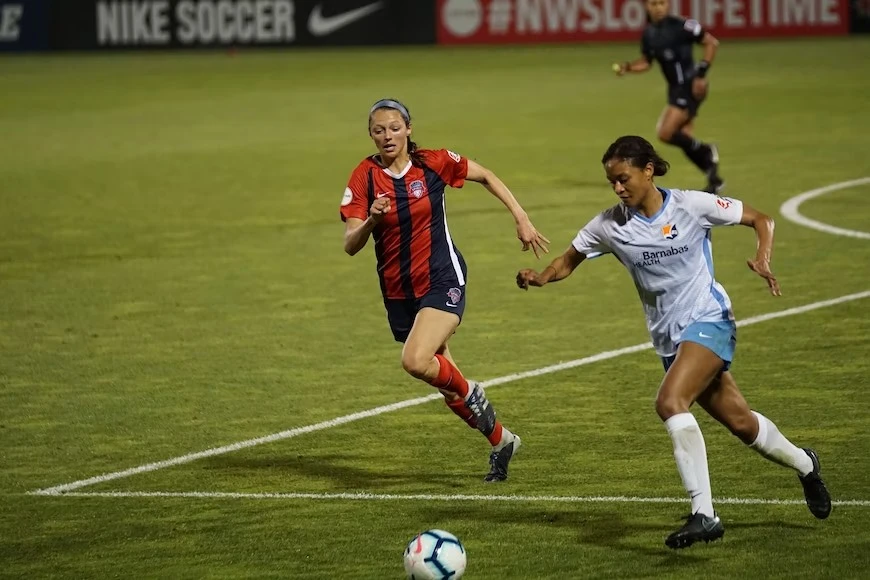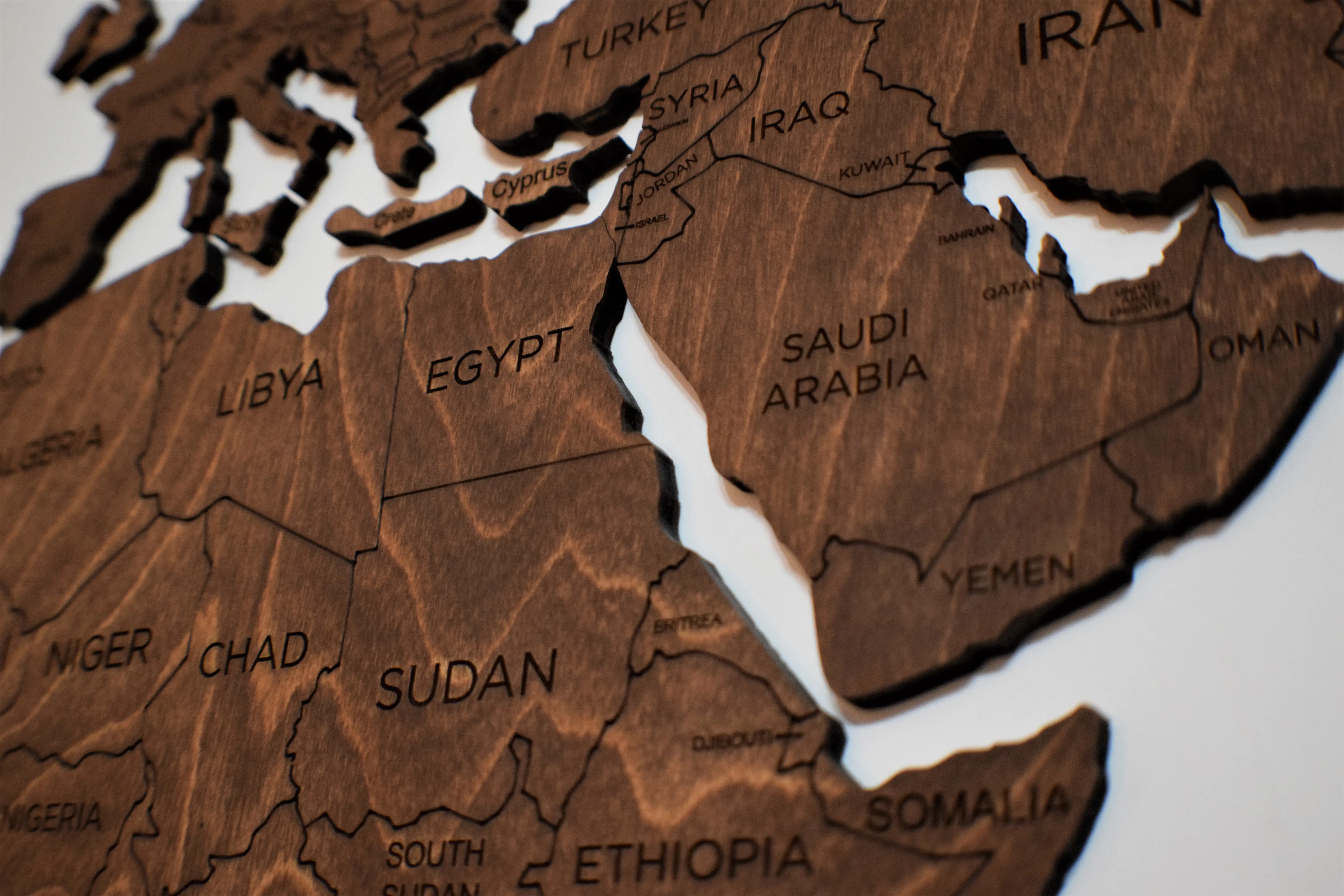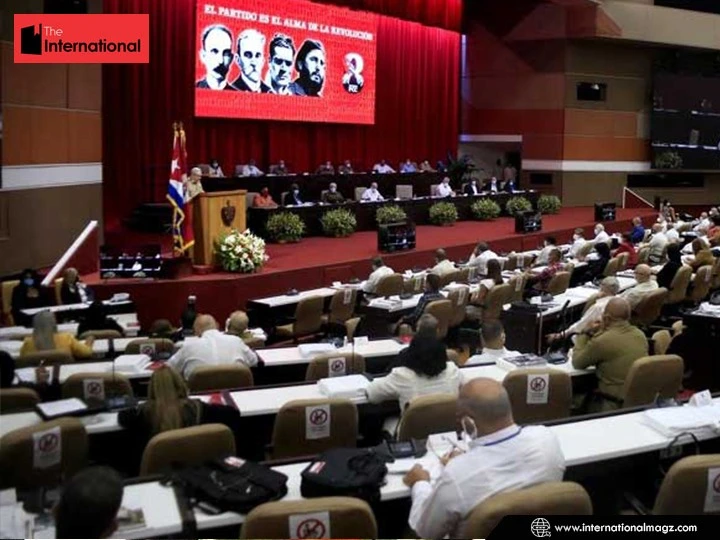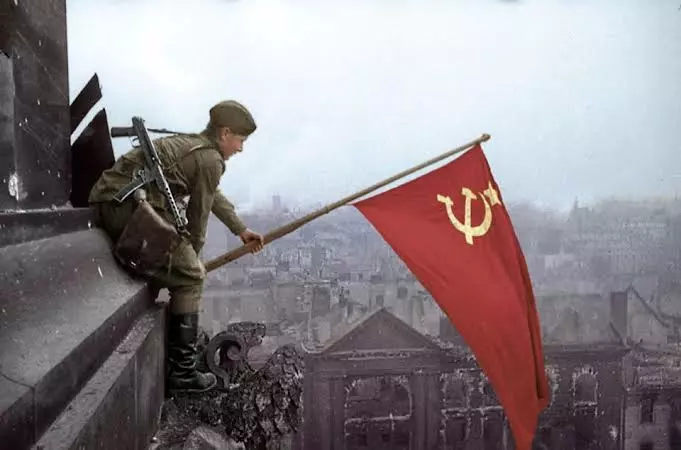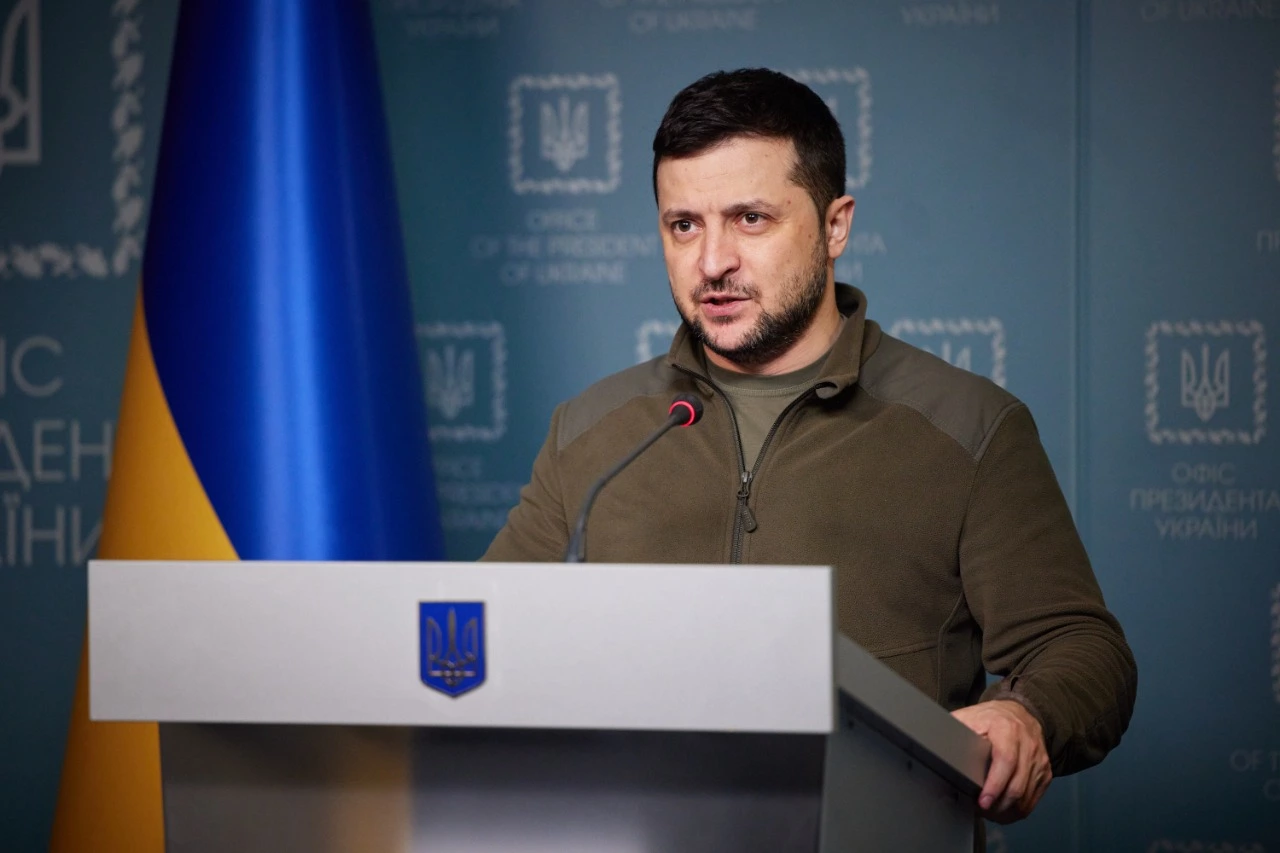Not since the Spanish Civil War has the fire of political revolt within the Spanish people been so vibrant and militant as when millions of Spanish citizens, and other countless millions of citizens around the world, as they watched the award ceremony in Sydney, New South Wales when the sexual assault took place upon one of the women of the victorious Spanish Women’s National team at the Women’s World Cup. The social criminal act and this type of behavior committed by Luis Rubiales, the president of the Spanish federation (RFEF) upon one of the Spanish footballers, Jenni Hermoso, has its origins in the time period when the Spanish Civil War erupted in Europe, when millions of Spanish women allied themselves with the Spanish Republic.
After the military defeat of the Republic, Generalissimo Franco, the Spanish fascist leader, would repress the majority of Spanish women for thirty-nine years, and that oppression in various forms, be they political, cultural or social are still prevalent in modern Spanish society. On July 17, 1936, when the first friction of war would begin between the Republican forces and the Nationalist generals who led their troops in revolt of the Second Republic, Spanish women would be involved in the hundreds in the various combat zones along the fronts stretching from Madrid to Barcelona. The first Spanish Republican woman to die in battle was the young Spanish woman, Lina Odena, on 13 September 1936. Such is the fatal price Spanish women have paid in the long history of struggle for human equality in Spain.
It would be in the year 1937 that progressive leftist, socialist and communist women would eventually join in the great battle for the salvation of the Second Spanish Republic. However, there was on the battlefield itself within the Republican military forces disunity and combat disruption which played into the hands of the fascist combat forces. Among the Spanish women militias, there were the collective forces of the Partido Comunista de España (PCE) which was composed of Spanish communist women fighters, Anarcha-feminist militias, and the politically reactionary Partido Obrero de Unificación Marxista (POUM) (which would attempt to undermine the military leadership of the PCE) as well as the Agrupación de Mujeres Antifascistas (AMA) which represented women from a wide variety of political backgrounds.
The AMA ended up serving as a vehicle of communist orthodoxy designed to mobilize women to support the Communist cause on the Republican side of the civil war. During the Spanish Social Civil War there was notable political sectarianism, individualism and dogmatic political forces that could not be resolved and hence the various Spanish women militia groups would turn on each other. This played a role in the disintegration of the Spanish Republic. There was also a large portion of the Spanish women who were fascistic in their view of women’s emancipation. In their primitiveness and crude enthusiasm, they sided with the Nationalists, embracing the strict gender roles put forth by the Catholic Church. Pilar Primo de Rivera, sister of the fascist Spanish politician, José Antonio Primo de Rivera, who founded Sección Femenina, an umbrella organization of Falange Española, worked with her brother in mobilizing these women during the pre-Civil War period and later during the war. From 300 members in 1934, its membership swelled to 400,000 in 1938. Many Spanish Republic women would be physically destroyed for fighting for the ideas of the Spanish Republic and its idealistic ideas of socialism. Hundreds of Republican women in fascist prisons would find themselves facing life and death situations their male counterparts did not have to deal with. Unlike their male counterparts, many Spanish women were given death sentences from fascist military courts for military rebellion and were given the status of common criminals. Some women in Nationalist zones experienced their husbands being arrested and executed because a Nationalist soldier coveted them sexually.
I will attempt to reveal a continuity between the Spanish women who fought for the Republic and equality during the Spanish Civil War and the young Spanish women footballers who are fighting for their rights in the modern age.
The timetable for equality for women in the Spanish football federation has its own unique war casualties. On September 22, 2022, fifteen Spanish women players declared themselves unavailable for selection as long as Jorge Vilda continued as head coach. Although they would later retract the removal of Vilda as coach, there was still dissent against him. Each of the players had written to the Spanish Federation (RFEF) insisting that the situation with the coach and the general situation be changed and that the coach and the federation adhere to “a clear commitment to a professional project with attention paid to all the aspects needed to get the best performance of this group of players”.
Six of the Barcelona players were among those who sent emails, as were Manchester United players Ona Batlle and Lucía García, and Manchester City players Laia Aleixandri and Leila Ouahabi. Captain Irene Paredes and Ballon D’Or winner Alexia Putellas were not among the signers, but Putellas did post a public statement in Spain. Jennifer Hermoso did not send an email with her fellow team members to the Royal Spanish Football Federation. Three of the fifteen women would eventually be on the Spanish Women’s World Cup squad for 2023. It was within the timetable of decades that the Spanish women would again move toward their emancipation, and that emancipation would be symbolized in their winning of the Women’s World Cup in 2023.
However, there is irony in the events leading up to the denouement with the behavior of the president of the Royal Spanish Football Federation. As often happens during historical events, the irony was that, in this case, it was not a woman, but a Spanish male coach who filed the first complaint. According to the online news outlet, The Guardian, it took place as follows -
Miguel Ángel Galán was watching with pride as Spain won the Women’s World Cup. His joy turned to disgust when Rubiales planted that forceful kiss on the team’s star striker, Jenni Hermoso. Within minutes, Galán, the head of the National Training Center of Football Managers, said he was drafting an official complaint to the Spanish government’s High Council of Sport (CSD).
“It was a sexist and intolerable act. A chauvinist act, by a president who is already plagued by corruption scandals and sexism,” he told CNN on Thursday. “Those are the two structural problems of the Federation in Spain: corruption and sexism.”
Galán, is an unusual Spanish man within the hierarchy of Spanish society as well as being a high official within the mainstream of the various patriarchal Spanish football associations. Although Galán is correct in his profound observations of “[c]orruption scandals and sexism” within the women’s football federation, not to mention the men’s football federation, what should also be exposed is the patriarchal behavior that is also embedded within the Spanish football systems that are tied to the overall cultural and political apparatus of the various Spanish governments that have existed since the time of Franco.
The social and culture oppression that the Spanish women’s footballers are battling against in the 21st century cannot be seen from a simple isolated perspective as the Spanish women footballers are in a struggle that is a part of larger global battle. As Dr. Artner, a Hungarian professor state, who has written about capitalism and all its inter-locking avenues of controlling all forms of labor, and that includes International Football and national Football federations groups as well, the game is about the accumulation of wealth and political power. The footballers, be they men or women, are the laboring slaves and political pawns of the economic engagements known as transnational capitalism. Dr. Habil Annamária Artner, CSc., is a senior research fellow at the Centre for Economic and Regional Studies, Institute of World Economics and a professor at Milton Friedman University Budapest. wrote the following description of transnational corporations which can be applied to The Fédération Internationale de football association (FIFA) and all the other football associations and institutions that come within the realm of FIFA’s controlling center:
In all capitalist countries, there are basically two large groups within the ruling class: one is the comprador bourgeoisie, encompassing mostly larger, foreign-oriented companies, which gain rent from the international economy through connections with transnational corporations, and the other, let’s call it “national” bourgeoisie, which is made up of mostly smaller, domestic-market oriented, eager-to-grow companies.
League football teams, not excluding national football teams, in many regions of the world are owned by exploitative individual owners or a merger of corporate owners. The revenues that are accumulated from the moneys made from the league football matches, including premier championship matches, are siphoned as much as possible into the hands of men and women owners and a few selected footballers, such as Lionel Messi and Cristiano Ronaldo, who are a part of the elite men and women who control the system of international football. Messi and Ronaldo play their roles in taking their football circuses from country to country not only to enrich themselves, but also to maintain control of the political and economic aspirations of football within the auspices of the football transnational corporations.
If one studies the various regimes of football associations throughout Western Europe, United States as well as encroaching countries such as Saudia Arabia who yearn to be the epicenter of international football, it will become apparent that the Spanish women’s national football team war against male chauvinism, capitalism, and the exploitation of footballers. The vicious history of patriarchal behavior is not simply an isolated war, but is also a class war with serious ramifications throughout the world. A multi-polar world in the political realm could enhance the possibility for women’s rights around the world in the social, cultural, and sports arenas.
When speaking about or acknowledging a social system of patriarchy, one can study the Spanish football system in relationship to the controlling the football techniques, social criteria and even the women’s passions for the most political sport in the world.
As the sports writer, Alex Ibaceta wrote in his essay, A revolution 40 years in the making: how the Spanish women’s team fought back -
A systematic issue rooted in Spanish women’s football has come to light on a global scale for the first time. What has been seen is only minuscule in proportion to everything that has occurred since 1988. It has taken 35 years for the players to be truly heard and supported, and for action to be taken against those in power…
It’s important to look back at the history of women’s football within the Spanish federation. Spain’s women’s team has had only two managers in 35 years. Before Rubiales it was Ángel María Villar, and before Vildar it was Ignacio Quereda. Villar and Quereda were at the helm of the Spanish federation and the Spanish women’s national team from 1988 and stayed there for 27 years.

Within those twenty-seven years that Ibaceta speaks of regarding the patriarchal and institutionalized power of Spanish women’s football, it has been dominated by male managers who have controlled the athletic and social aspirations of the Spanish women footballers. This patriarchal behavior is not simply among the Spanish Women’s Football Federation, but is world wide as well. As the Conversation, a noted academic and journalist online network wrote in one of its essays on the Women’s World Cup 2023:
Many national federations have failed to provide adequate support, facilities and investment to adequately prepare teams. Coaching methods and management of some women’s teams have been heavily criticised, alongside cancellation of training camps and non-payment of players’ appearance fees.
The England team have made public their frustrations with the Football Association (FA) and its piecemeal negotiations, as they learned that unlike the US and Australian teams, they will not be receiving expected pay bonuses on top of Fifa prize money.
The FA also introduced new measures to restrict their participation in lucrative PR opportunities in the buildup to the tournament to ensure they were rested, only to change their minds when it was too late for players to take advantage. Given that international tournaments make up a large proportion of these players’ earnings, they need to know where they stand – and much further in advance.
Although two women journalists, Beth Fielding-Lloyd and Lindsey Mean attempt to make serious statements about the lack of attention to serious injuries of many professional women footballers that in many cases caused them to miss involvement in the Women’s World Cup 2023 and the lack of “[f]airness”. They wrote “Before the tournament began, key players from top teams such as France, Spain, Canada and Jamaica were protesting about poor support, resourcing and coaching by either refusing to play or openly criticising their federations and seeking advice from Fifpro, the international players union.” But then the weakness of the two bourgeois women journalists is that much of their essay concentrated more on endorsements and profitable income from the many forms of commercialization that ultimately kills the footballer as her passion becomes more about money than the passion of football in all its euphoria and tragedy. For it is indeed the football spectacle that defines cultures that elevate football to an art. I understand this deeply as a former high school soccer coach and founder of F.C. Vermont-Champlain, a multi-cultural football team.
It would be an American newspaper, The Los Angeles Times, that would make a serious commentary on the president of FIFA and his primitive condescending comments on the current situation of women and their rightful place in the sun in the world of international football, by stating -
But if Infantino’s heart is in the right place, his mouth has yet to follow. At a conference in Sydney days before the World Cup final, the FIFA boss made an offensive, condescending speech in which he put the onus for change on the women, not on the power brokers at the top of the sport who control the purse strings - and most everything else.
“Pick the right battles. Pick the right fights,” he urged. “You have the power to convince us men what we have to do and what we don’t have to do. You do it. Just do it.”
It makes you wonder if Infantino has any strong women in his life. The motto for this World Cup, after all, was “Beyond Greatness.” Four years ago in France it was “Le Moment de Briller,” (The Moment to Shine), which was rendered in English as the subversive-sounding and patronizing “Dare to Shine.” Imagine FIFA urging Lionel Messi or Cristiano Ronaldo to go “beyond greatness” and “dare to shine.”
Although the essay written by Kevin Baxter reveals the economic and social contradictions in a journalistic spirit, it fails to mention that Lionel Messi and Cristiano Ronaldo are corporate footballers and their passion for the “Beautiful Game” is more about money and political power. For football is the courageous game, where even the poorest boy or girl when touching the ball on a rough, dirt pitch can feel the glory of what it means to be a footballer in the sunlight and the darkest shadows of the world as we know it.
In the Journal of the Philosophy of Sport in 2019, there was a succinct paragraph on the discrimination of women in general regarding sports, labor and identity -
The first argument we consider for equal pay is summarized in the slogan the U.S. women’s team used in their campaign for to be paid the same as the U.S. men’s team: ‘Equal Play, Equal Pay’. The idea here is simple. The two teams play at equivalent levels and devote equivalent amounts of time and energy to doing so and so they should be paid the same salary. The more general principle underlying this slogan is one that has served as a popular rallying cry among feminist campaigners around the world, namely that equal work should be rewarded with equal pay. When a woman is paid less than a man for the same job this is a clear case of injustice. When a white person is paid more than a black person for the same job this too is a clear case of injustice.
What makes the above paragraph is not the “feminist campaigners” slogan, but the basic necessity of equal pay for the sportsmen and sportswomen and their productivity in the work place, for example, the training sessions of women footballers on the pitch as well as their work at the various professional matches including international appearances (caps) as well. The other issues that very few journalists as well as American academians and so-called scholars rarely write about regarding women’s football, especially in North America, is the paramount issues of class and racial discrimination in women’s football leagues. Until these issues of class and racial disparity are discussed in open public sessions and among the leadership of the various professional soccer leagues, then the ongoing repression of women’s rights and dignity, a prime example of which occurred at the award ceremony for the Women’s World Cup 2023, will not end. It will only increase in its ugly complexities and in the destruction of the on-going history of women’s football.
In an interesting commentary on women’s right verses feminism, the Marxist writer, Alan Woods, wrote how nationalism and class interests disrupt and attempt to destroy the progression women make in their various occupations around the world:
The bourgeois and petty bourgeois nationalists play a pernicious role in dividing the working class on nationalist lines, playing on the understandable feelings of resentment caused by long years of discrimination and oppression at the hands of the oppressor nationality. Lenin and Russian Marxists waged an implacable struggle on the one hand against all forms of national oppression, but also on the other hand against the attempts of bourgeois and petit bourgeois nationalists to make use of the national question for demagogic purposes.
In the realm of women’s national and international football, there are both men and women who share bourgeois and petty bourgeois values that are not in the interest of the ordinary and professional women footballers, but whose main interest is labor and economic exploitation of the players and when need be, to exploit those women footballers for nationalistic and patriarchal interest to benefit the few elites that govern those women.
In conclusion, I would state that Women’s Football is always a friction of progress, nothing less than a war by another means on the pitch, where those women achieve their sports immortality but also their contribution to women’s political, social and cultural rights -- their touch on the ball a heated bullet toward even those that have oppressed them.
Editor's Note:
The views and informations expressed in the article are solely those of the author and may or may not reflect the views of The International. We believe in providing a platform for a range of viewpoints from the left.
"The International" belongs to you.✕
Please take a moment to read this. We apologize for any interruption, we want you to know "The International" seeks your valued support at this time. We've proudly served as a pioneering online platform, delivering ad-free media content. With only 2% of our readers opting for a subscription, any contribution you choose holds immense significance—whether it's an annual fee of $25 or a monthly payment of $2.5. — The "The International" Team, committed to providing you with enlightening perspectives. We want to highlight that this sum is even less than what you'd spend on a cup of coffee, yet it greatly aids in sustaining our efforts to perpetuate and enhance your esteemed initiative.
